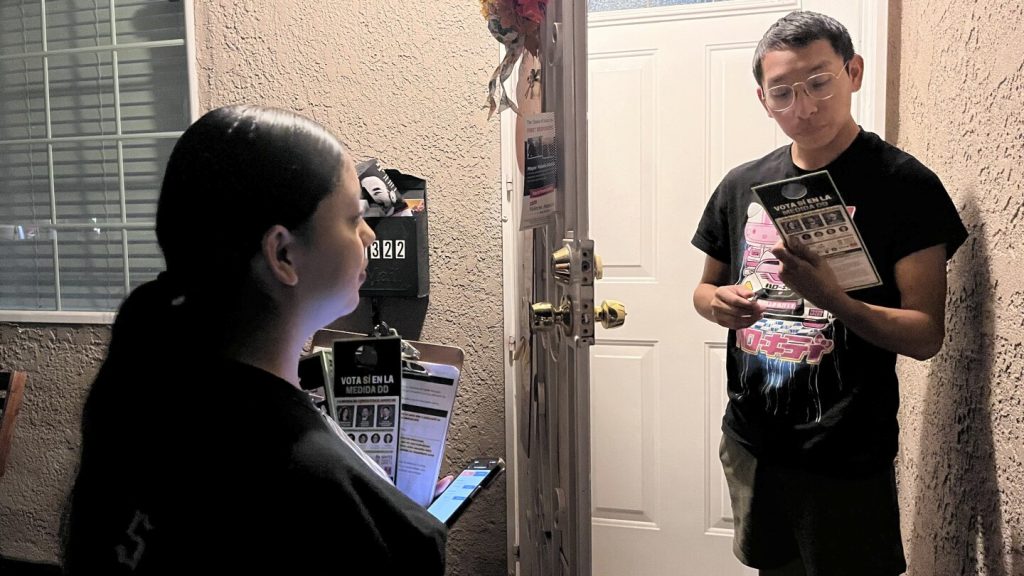The city of Santa Ana in Orange County, California, is considering a ballot measure that would allow noncitizens to vote in local elections, making it the first city in California to do so. While it is illegal for noncitizens to vote in federal elections, some argue that they should be allowed to participate in local elections since they live in the communities and pay taxes. Other states, such as Maryland, Vermont, and Washington, D.C., have already passed laws allowing noncitizens to vote in local elections, but efforts in places like New York City have been met with legal challenges.
Santa Ana city council member Benjamin Vazquez argues that allowing noncitizens to vote would address the issue of taxation without representation, as a significant portion of the population in Santa Ana does not have a say in how the government is run. The estimated number of residents in Santa Ana who aren’t citizens is around 70,000, contributing $117 million in state and local taxes annually. While Orange County has traditionally been conservative, changing demographics have led to a shift towards the left, although Republicans still maintain control locally.
Supporters of the ballot measure believe that the new voters would include permanent residents, visa holders, refugees, and immigrants without legal status. However, opponents, such as attorney James Lacy, argue that voting rights should be reserved for citizens who have gone through the naturalization process. Lacy previously filed a lawsuit challenging the wording of the ballot measure, claiming it was biased in favor of passing. He has also opposed similar efforts in the past, such as allowing noncitizen parents to vote in school board elections in San Francisco.
The debate over noncitizen voting reflects changing societal values over time, according to ACLU of Southern California staff attorney Julia Gomez. While citizenship has historically been a requirement to vote, eligibility criteria have evolved, with some states allowing noncitizens to vote in the past. The push for Measure DD in Santa Ana is seen as a reflection of the community’s readiness to include noncitizens in the democratic process, acknowledging their contributions and stake in the city.
The election year has seen heightened discussions around noncitizen voting, with Republicans highlighting the issue as a key talking point. Former President Donald Trump has claimed that Democrats are encouraging undocumented immigrants to vote, despite no evidence of widespread voter fraud. Efforts to implement proof of citizenship requirements for voter registration have faced opposition, with only five Democrats supporting the measure in the U.S. House. Twelve states have passed laws restricting voting to U.S. citizens, while others are set to vote on the issue in the upcoming election. Supporters of noncitizen voting argue that residents like Miguel Quin, a Mexican immigrant without legal status, deserve a voice in local decisions as they contribute to the community through their work and taxes.
Santa Ana Mayor Valerie Amezcua has expressed concerns about the costs and potential legal challenges associated with implementing noncitizen voting if the measure passes. If approved, the measure would amend the city charter to allow residents who have established residency in the city to vote in local elections. However, noncitizens would still be prohibited from voting in federal elections, and the city clerk would oversee the electoral process. The outcome of the ballot measure in Santa Ana could set a precedent for other cities and states considering similar measures to expand voting rights to noncitizens in local elections.


